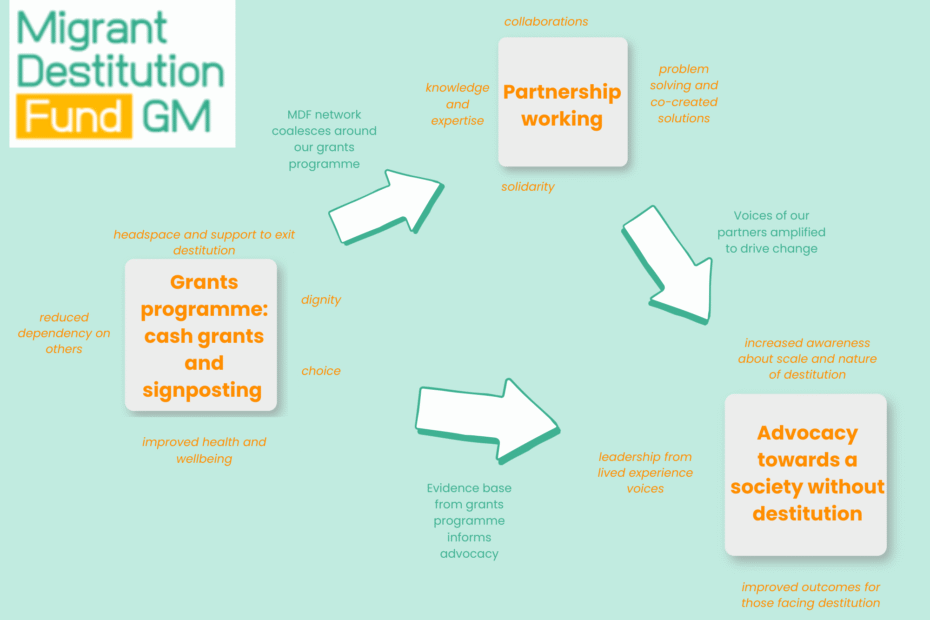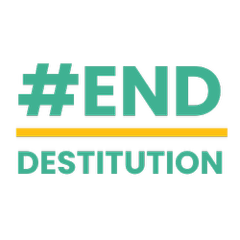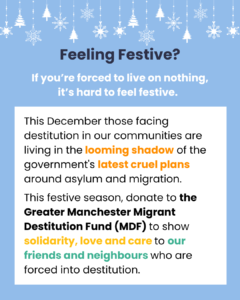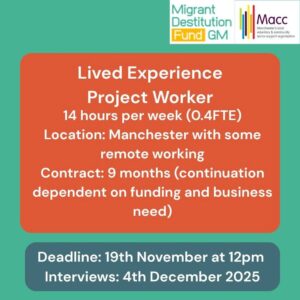the greater manchester migrant destitution fund
a fund that shouldn't have to exist
The GM Migrant Destitution Fund (MDF) provides cash grants for people forced into destitution by their immigration status.
We shouldn’t have to be doing this. We believe that all of us, wherever we are from, have the right to live with dignity as members of our society, free to support ourselves and access an essential safety net when we need it. But in the hostile environment around migration and asylum, thousands of people across our city region are forced into destitution, denied the right to access welfare and, in many cases, to work - solely because of where they have come from.
As long as the government goes on using destitution as a weapon of immigration control, we are committed to provide cash grants to support people to meet basic needs and promote wellbeing. By providing cash, with no strings attached, we seek to restore a degree of dignity.
We operate a 'fund-plus' model. Beyond our grants programme, we also:
- signpost where possible for additional support and pathways out of destitution
- develop partnership working between frontline organisations across GM
- advocate for change to build towards a society where no one is made destitute because of where they come from.
You can see a visualisation of our model below - for more detail, see our theory of change.
latest news
directly helping people who are destitute
Kamrul
"The Fund helped me during the worst time, giving me space to submit a new asylum application."
Elizabeth
"If you can understand and give us a visa, we can help the community. We want to give something back."
Tenneh
"There are people in this country suffering because you cannot work, you have no recourse to public funds."
sign up to our mailing list
We'll send you a newsletter with stories from the fund straight to your inbox








